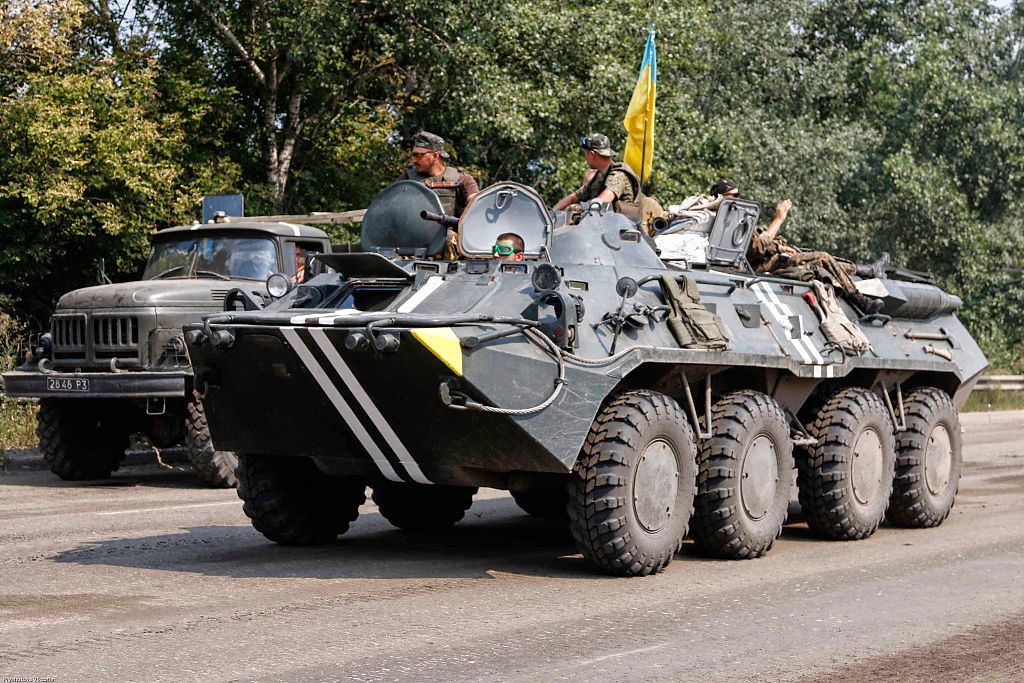CONIAS Risk Data | News
Russia’s troop build-up on the Ukrainian border: Why now?
04/16/2021

The signals are worrisome: The Russian Federation’s troop concentrations on the Ukrainian border are unusual and at the same time frightening. After all, there are clear parallels with the last outbreak of war. Moreover, since this Russian-directed war in the Ukrainian Donbass region and the occupation of Crimea by Russian soldiers, relations between the two states are worse than any between other European states.
Is there a threat of war between Russia and the Ukraine?
Overall, the situation has to be described as very serious and the criticism from the Ukraine and other eastern NATO states that Germany and other Western states do not understand the situation in all its depth and threat is probably correct. Evaluations from our MBI CONIAS Conflict Database, in which the course of more than 1,000 political conflicts since 1945 is stored, also clearly show that in well over 50% of all recorded cases such troop concentrations were followed by wars or other highly violent military conflicts. Most recently, a report spread in Russia by the state-controlled media stating that the Ukraine was planning reconquests was highly concerning. Actions like this prepare the important domestic legitimacy needed by the Russian government for another war against the Ukraine. Companies are advised to be extremely mindful of this tense situation, to refrain from avoidable travel to the Ukraine, and to prepare for disruptions in the Ukrainian supply chain in contingency plans.
Why is this development taking place now?
An analysis of the situation always includes the question: What is the significance of the timing of the action? In other words: Why is the deployment taking place now, why not two months ago, what has changed? At least two answers are possible here, one confirming the dangerousness of the action, the other potentially providing a rational argument raising hope for a peaceful outcome to the situation. What has to be observed critically is that Russia has extensively issued passports to the population in the disputed regions of eastern Ukraine in recent years. Estimates put the number of new Russian citizens at at least 400,000. This could give Russia an argument for now wanting to protect this segment of the population on official Russian territory as well.
Is Russia testing the new U.S. President?
The second view dates back to the days of the Cold War, but given the current state of the international system, it may be accurate for precisely that reason: Russia could be testing the new U.S. President. Joe Biden has been in office for less than 100 days. His plans for a huge domestic economic stimulus program, the announcement of the withdrawal of American soldiers from Afghanistan, and the additionally tense budget situation after COVID make it clear that he shouldn’t have any interest in further international military engagements. Joe Biden, however, now has to demonstrate how he will respond to the provocations from Russia: It could be the overture for U.S.-Russian relations for years to come. It seems clear that U.S. President Biden is not going to engage in a military confrontation for the Ukraine any more than U.S. President Obama did during the previous crisis in 2014. In this context, he has to make it clear that the U.S. will not accept a similar approach as in 2014. Only if Biden acts quickly and decisively now and credibly conveys that the U.S. has a renewed interest in playing the role of the world’s policeman, the build-up can be halted and the Russian troops on the border to Ukraine under more or less credible justifications can be reduced. Otherwise, Russia might try to take advantage of the power vacuum created by the U.S. – as other regional powers have done. The result would be a further weakening of the international system with many more international crises to come.
Political risks have so far been considered complex and difficult to grasp. To learn more about MBI’s CONIAS Risk Intelligence and how it can support businesses in identifying risks and developing targeted adaptation strategies, contact our Sales Team.
About the author:
Dr. Nicolas Schwank
Chief Data Scientist Political Risk
Michael Bauer International GmbH
Image source: ВО «Свобода», CC BY 3.0, via Wikimedia Commons